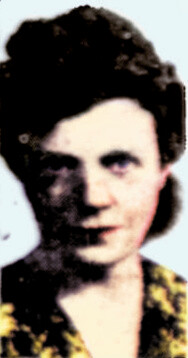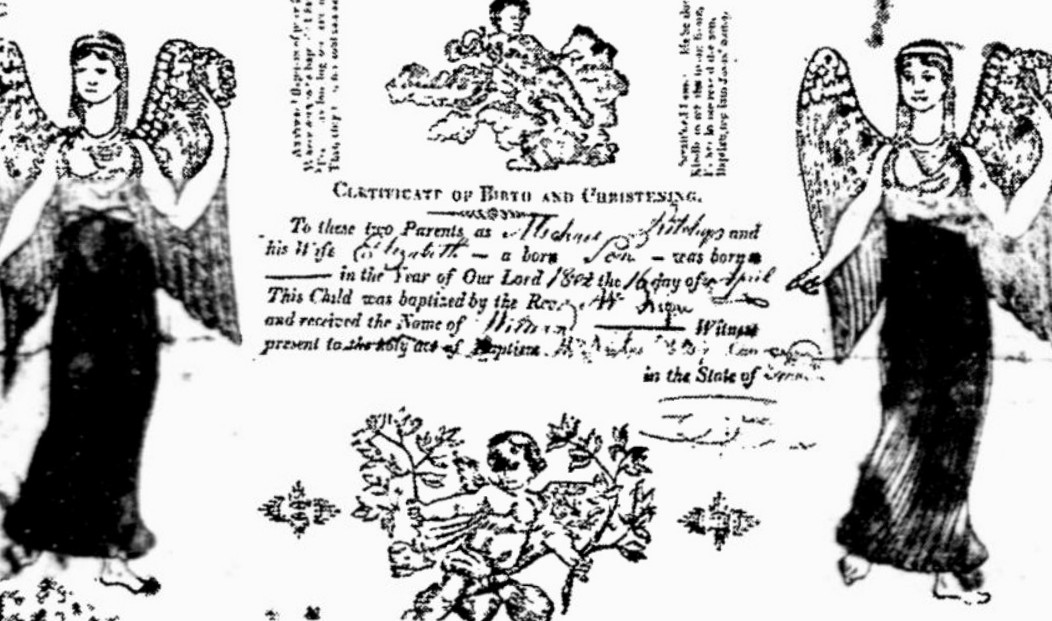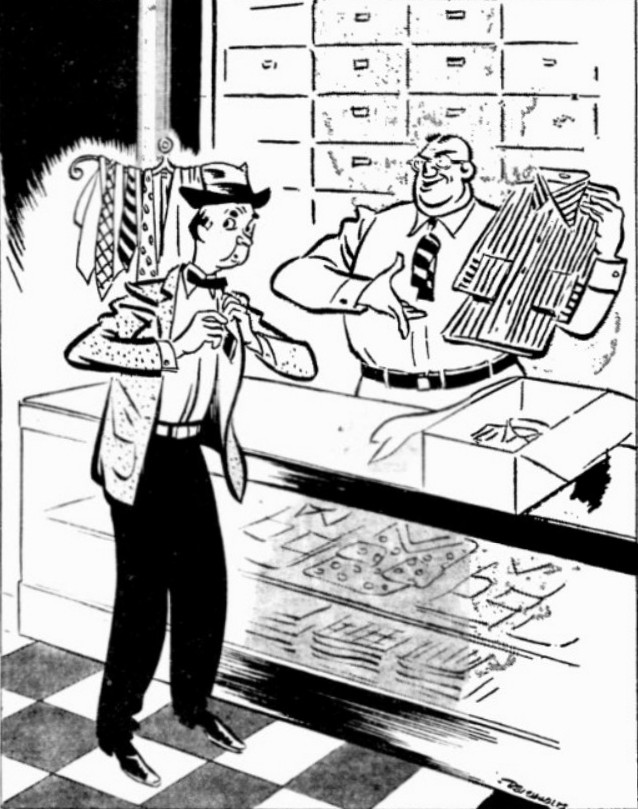The Pittsburgh Press (June 28, 1942)
FBI seizes eight German saboteurs landed by subs in New York, Florida
Plans to wreck industries revealed; equipment and $150,000 confiscated
By Robert Evans, United Press staff writer
New York –
The Federal Bureau of Investigation revealed tonight the arrest of eight Axis saboteurs who crossed the Atlantic by submarine from France to effectuate a two-year plan of sabotage against United States’ war industries, water supplies, railroads and waterways.
Apprehended before their ambitious plans could be underway, the eight confessed their complicity, J. Edgar Hoover, chief of the FBI, revealed at an extraordinary press conference at FBI Headquarters in New York.
Federal operatives found caches of explosives of all kinds – bombs disguised as lumps of coal, incendiary pencils, time bombs, dynamite – buried along with the uniforms the saboteurs had discarded when they landed – in two groups of four each – near Jacksonville, Fla., and on Long Island, near New York City.
Where the tipoff came from on this audacious undertaking Mr. Hoover did not reveal, but he said that the first arrests were made June 13 and the last two today at Chicago.
The government may ask the death penalty for the prisoners, if it so desires, for espionage is a capital offense in wartime.
The men, trained in a special sabotage school near Berlin, left from an unnamed French port late in May. Their plans were well-laid, for they were expected to operate over a two-year period. To aid their efforts at sabotage and undermining United States morale, they had $149,748.61 in U.S. currency, in addition to the explosive tools of their trade, and the maps to guide them.
Their known objectives, Mr. Hoover said, included:
-
Aluminum Company of America plants in Tennessee, East St. Louis, Ill., and Massena, NY.
-
The Cryolite Metals plant in Philadelphia.
-
The Hell Gate Bridge, important transportation point in the populous New York metropolitan area.
-
The Pennsylvania Railroad Station in Newark, eastern terminus of the line to Washington and points west.
-
The Horseshoe Curve of the Pennsylvania Railroad near Altoona, Pa.
-
The water conduit system of Westchester County, passageway of much of New York’s drinking water.
-
New York City’s water supply system.
-
The hydroelectric plant at Niagara Falls.
-
The saboteurs’ plans also included such minute details as placing bombs in the lockers of railroad stations and department stores throughout the country “to create panic and lower morale.”
Mr. Hoover made his disclosures of the arrests at 8:25 p.m. He said:
I have a very important statement to make. I want you all to listen carefully; this is serious business.
Then, step by step, he outlined the story of the saboteurs who came to America – all eight of them had lived here before – to do the job for which they had been specifically trained.
Four of them – including a U.S. citizen, Herbert Haupt, whose father was naturalized in Chicago in 1930 – landed at Ponte Vedra, Fla. His companions were Edward John Kerling (the leader), Werner Thiel and Herman Neubauer.
They landed June 17.
Four days earlier, on June 13, a submarine crept close to the shore of Long Island to discharge four men at Amagansett, on the south shore.
Those who landed in New York were George John Dasch (leader), Ernst Peter Burger (a naturalized citizen since 1933), Heinrich Heinck (alias Henry Kaynor), and Richard Quirin (alias Richard Quintas).
Both groups found isolated spots along the shore, dug holes and buried their sabotage tools in the sand.
But the New York invaders were doomed. There was a series of arrests here on the very day they landed. From then, it was presumed, came the information that resulted in the arrest of those who landed in Florida.
Today, Mr. Hoover reported to President Roosevelt and Attorney General Francis Biddle that all eight are in custody.
In addition to the specific tasks assigned the saboteurs, they were instructed to locate industrial bottlenecks and to do all that they could to impede United States’ progress in the war effort.
Their training, Mr. Hoover said, was “magnificent.” They were schooled carefully in a training center near Berlin. They were taught that the ways of sabotage were not difficult. They were taken to factories and railway centers in Germany where the ease with which sabotage could be done was demonstrated to them.
Technical experts in sabotage drilled them for months in the niceties of their work. Their plan of action was scaled carefully to extend for at least two years. English-speaking and personally acquainted with the country, they were expected to have no difficulty in traveling to their various rendezvous.
All that prevented them from carrying out their long-range sabotage was the quick roundup by the FBI.
Brief biographies of the prisoners showed how each had been carefully selected by superiors in Germany because of previous residence in the United States and their knowledge of the country, its customs and language.
Dasch – the leader of Group I, as Mr. Hoover called the Long Island party – was arrested June 22 in New York City. Before leaving Germany, he adopted the name George John Davis, by which he was to be known here.
He is 39, a German soldier in World War I at the age of 14. He entered the United States at Philadelphia in 1922 and worked in hotels and restaurants in San Francisco, Sacramento, Los Angeles, White Plains, NY, and in Florida. Although he filed naturalization papers in New York City, he did not appear for hearing.
He married Rose Marie Guille, an American-born citizen, in 1930.
Burger was to be known here as Pete Berger. He is 36, an intimate of powerful figures in the Nazi Party and, in fact, a member of the party since 1924. He came to the United States in 1925 and worked in machine shops in Milwaukee and Detroit.
He was a member of the Michigan National Guard in 1931. In 1933, he became a naturalized citizen, but friends in Germany persuaded him to return there, where he became active in Nazi Party affairs as group leader, writer and propagandist.
Drafted into the German Army as a private, he volunteered for sabotage duty in the United States and spent four weeks at the special training school. He was arrested June 20.
Heinck entered the United States illegally by jumping ship. He joined the German-American Bund in 1934 and served as sergeant-at-arms at meetings in the Yorkville Casino in New York City. He went back to Germany in 1939.
Quirin, 34, came to the United States in 1927 and, in 1929, at Schenectady, NY, indicated his intention to become a citizen. He was never naturalized, however. He worked as a mechanic in Syracuse, NY, for some time. He belonged to at least two pro-Nazi groups here before returning to Germany in 1939. He too was picked up June 20.
Kerling, leader of the Florida group, was to be known here as Edward Kelly. He was picked up by the FBI June 23. He came to the United States in 1929 when he was 20 years old and worked as a domestic for wealthy families in Greenwich, Conn., and Short Hills, NJ. He was active in the Bund movement and was a guest of the German government at the Olympic Games of 1936. In September 1939, he and a party of Bund friends bought a yacht with which to return to Germany. They were caught by the FBI in Miami on the suspicion that they were trying to get supplies to German submarines.
Haupt is only 22. He was arrested today in Chicago. The Haupt family – Hans Max and Erna Haupt are the parents – settled in Chicago 20 years ago, where Herbert attended public schools and was an active member of the ROTC. He went to Mexico in June 1941, and got into contact with German authorities who helped him return to Germany.
Thiel was arrested in New York June 23 in a large hotel at which he was registered as William Thomas. He is 35 and worked for two large auto companies in Detroit and a hospital in Hammond, Ind., at various times. He was active in Bund affairs in New York and Chicago and also held jobs in Philadelphia and Los Angeles.
Neubauer, 32, a sailor by trade, also worked in hotels in Hartford, Conn., and in Chicago, where he married an American citizen in 1936. He got a job on a ship in 1939 and made his way to Germany where, the FBI said, he:
…received sabotage training with the other men who accompanied him to this country.
Haupt joined Nazis almost year ago
New York (UP) –
The FBI made the following statement regarding the arrest of Herbert Haupt:
Herbert Haupt, 22, was a member of Group II, composed of four German saboteurs, who landed from a submarine south of Jacksonville Beach, Fla., June 17, 1942. He was apprehended June 27, 1942, in Chicago. Herbie, as he was known to his saboteur companions, is the son of Hans Max and Erna Haupt of Chicago, both of whom are naturalized citizens of the United States. Herbie Haupt was born in Germany, but is a citizen of the United States, having derived his citizenship through his father, who was naturalized Jan. 7, 1930.
The Haupt family came to the United States approximately 20 years ago and settled in Chicago, where Herbert attended a public high school, in which he was an active member of the ROTC. While living in Chicago, Herbert was employed as an apprentice optical worker, but on June 14, 1941, he resigned his position and, traveling through the Midwest, he entered Mexico at Nuevo Laredo, thereafter proceeding to Mexico City. While in Mexico City, Herbert Haupt was in constant contact with the German authorities.
From Mexico City, Haupt proceeded to Japan via a small Japanese freighter and from Japan, he proceeded to Bordeaux, France, on board a German blockade breaker. Upon his arrival in Germany, he was recruited as a member of the German sabotage group, and was given training in sabotage work by the German High Command.




